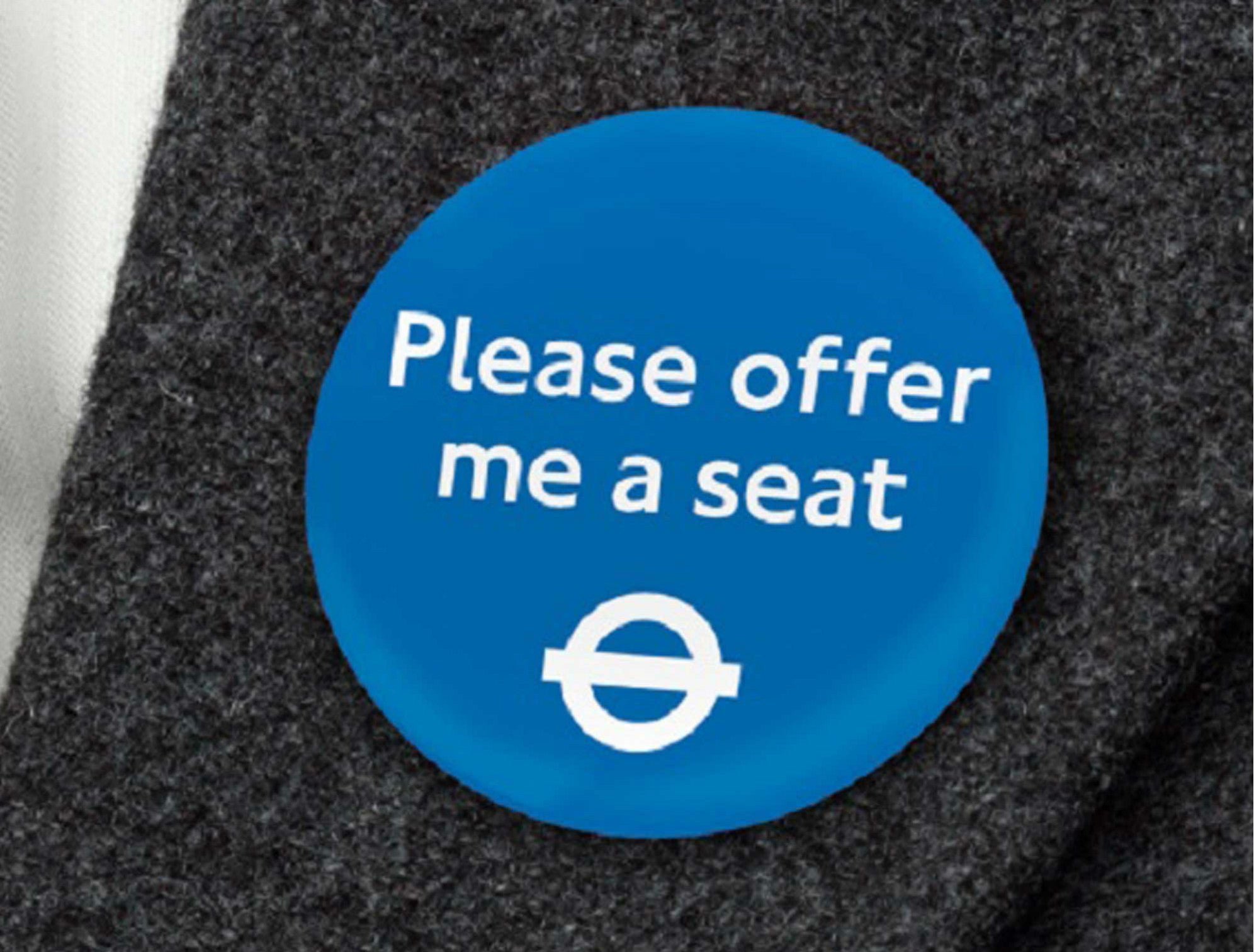As a disabled person forgive me if I'm cynical about TFL’s hidden disability badges
The schemes are cheap to get up and running, and take little effort to administer. Throw in a bit of publicity so people know about them you and can sit back and rely on the goodwill of able bodied tube passengers or shoppers to be able to chalk up a success


First it was Asda, with its signs reminding people that not all disabilities are visible outside accessible toilets. Now TFL has come up with badges designed to encourage fellow passengers to offer seats to those with disabling conditions you might not be able to see; hidden disabilities.
It all looks wonderfully progressive, and has been perfectly timed to coincide with Channel Four screening the exploits of its Paralympian “super humans”.
Smart PR departments know that disability becomes a live issue once every four years. Why not use it to score a few points?
Sorry, but as someone who has lived with a disability you can see (a mobility impairment) and one that you can’t (chronic neuropathic pain) for five years now, my experiences have made me ever so slightly cynical when it comes to the motivations of organisations like Asda and TFL.
It’s not that I think that the badges, or the signs, themselves are a bad idea.
The former are modelled upon those bearing the legend “baby on board” that TFL made available to pregnant passengers a while back in the hopes of persuading passengers to do the decent thing and offer them a seat. Sometimes people do that. Sometimes they don’t.
If the new breed of badges offered to people with hidden disabilities mean wearers get to sit down when they need to, then of course that would be a very welcome development.
What troubles me, however, is that our society has to resort to using sticking plasters like this in the first place, to cover the open wound of the way people with disabilities are treated in everyday life.
It speaks volumes that when I approached a friend with a disability you can’t always see about the TFL scheme they worried that being labelled “disabled” by means of the badge might result in their getting beaten up after leaving the tube station.
Before you dismiss that as alarmist, I have myself suffered from abuse on the tube network prompted by my disabilities so I can well understand their misgivings.
Of course, large parts of that network are no go zones for me, and lots of other disabled people, in the first place.
Which highlights the other potential problem with the badges, or, for that matter, with Asda’s signs.
They make it too easy for institutions to pat themselves on the back and pretend that they are being inclusive and doing good things. The schemes are cheap to get up and running, and take little effort to administer. Throw in a bit of publicity so people know about them you and can sit back and rely on the goodwill of able bodied tube passengers or shoppers to be able to chalk up a success.
Look how wonderful, cuddly, and inclusive we are! See our commitment to making life better for our disabled passengers/customers!
It’s a different story when it comes to asking TFL to make the tube network fully accessible. To get lifts fitted at stations in Zone One, to ensure step free access.
It’s a different story with supermarkets when it comes to making sure that the feckless and lazy don’t park in disabled bays, because taking action to ensure that is the case might mean upsetting customers, even if those customers are behaving disgracefully.
So, one and a half cheers for the badges, and the signs. They’re worthwhile ideas but I’d feel a lot better about them if the big institutions behind them showed similar willing to tackle the tougher, more intractable problems that face disabled people when trying to use services that should be open to all regardless of whether they wear badges or not.





Join our commenting forum
Join thought-provoking conversations, follow other Independent readers and see their replies